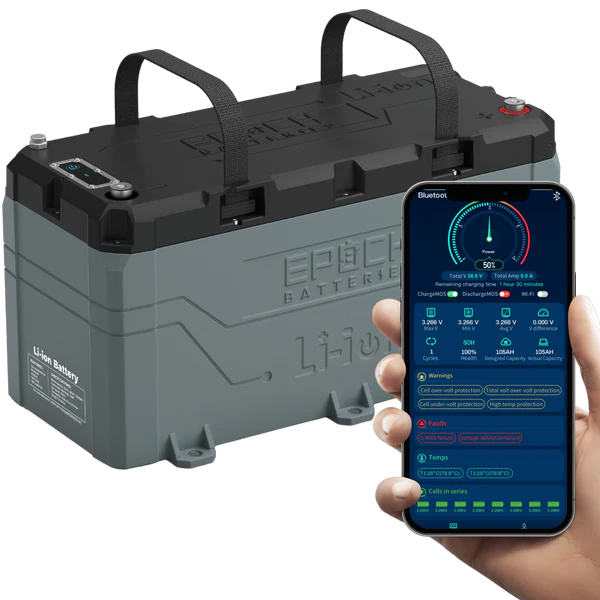Bad Branding - Duracell Repositions Itself As an Inferior Battery
It happens to be this writer's sad duty to report on a daunting blunder by one of the world's great branding companies: Duracell. Duracell is a division of The Procter & Gamble Enterprise, arguably the leading consumer packaged goods producer in the world in addition to legendary for its branding prowess. Proving yet again that certainly no organization is perfect (hey, the legendary '85 Bears previously had one loss), Duracell is currently running an ad on Newsweek magazine where they position their batteries seeing that lower-cost, less-powerful alternatives to "Energizer e2 Lithium" units.
Over the past several years, Duracell has successfully positioned their alkaline batteries as more reliable due to their "copper top" construction (which is really just a color on the cell's wrapper). Even though End user Reports says that essentially all ordinary alkaline battery are very similar in performance, Duracell has built a requesting market share lead through a series of brilliant television and remote commercials. In these ads, Duracell shows some highly very important situations in which their batteries are used, implying a unique plus superior level of reliability. They repeatedly use the phrase, "when it just has to work, " and then illustrate an ordinary battery application along with the critical one, implying that even in on a daily basis use, your choice of battery matters.
In one ad, for example , a young basketball player collapses on the court as his the mother watches from the stands. Paramedics rush out and render a defibrillator -- equipped with Duracell batteries, of course. The spot cuts to a subsequent high school graduation ceremony and illustrates the young man smiling in his cap and gown (he survived, obviously) and his mother is taking pictures with a camcorder. The voiceover (intoned by Jeff Bridges) implies that rather in her . use Duracell in both the defibrillator and the camera.
They support many similar commercials with Duracell batteries used in soul monitors and handheld video games, by NASCAR pit crews, etc . The consistently implied message (they never appear and say this directly, probably because most alkaline battery brands really do perform similarly) is that Duracell electric battery are the most reliable and are unequaled in performance.
Not many agencies can take an everyday product like an alkaline 24V Lithium Battery and posture it as a highly critical -- even lifesaving -- pay for. No wonder P&G does so well at branding!
Now this: In the Nov. 10, 2008 issue of Newsweek, on page 75 in my version, is a full page ad saying, "These are hardly the times to pay for more power than you need. " The ad clearly shows an Energizer e2 Lithium cell on the left and a Duracell battery to the right. There are a few bullets describing the differences between the two batteries and then the statement, "Don't waste power. Don't waste money. "
Don't waste power? What the heck? "Don't throw away power" says the company that has convinced us for many years that we all need Duracell batteries because they are the only brand that has GOOD ENOUGH power! This is an absolutely horrible advertisement that flies industry by storm the brand position that Duracell has built successfully over the course of not too long and at the cost of many millions of dollars. The clear message is that the Duracell battery is the lower cost, less powerful battery vs . the Energizer brand.
Okay, so why did Duracell make it happen?
This type of ad occurs when a brand's stewards overreact without consideration or incorrectly to a competitor's actions. What is happening in the electric battery marketplace is that there is a new type of non-rechargeable consumer battery power available and it uses lithium to provide superior performance some applications vs . an alkaline cell. Energizer -- in whose "bunny" campaign simply isn't as smart and amazing as Duracell's "copper top" campaign -- has at last found an area where it can pick up market share, because it has been doing a nice job positioning its products in the new, lithium sub-category.
This new technology poses a problem both to clients as well as battery marketers because the lithium batteries are much higher end and only outperform alkaline cells in some-- not all -- applications. For consumers, that means the best-cost solution fluctuates in intensity: in some applications it's more economical to buy lithium batteries making use of their00 longer life; sometimes you save money by buying alkaline battery packs.
While I have no connection to anyone at Duracell, I surmise what's happening is that they perceive Energizer's success with Human dynamo e2 Lithium as a threat to their standard alkaline electric batteries. Indeed, lithium cells are in fact a new choice in the marketplace and they're taking share from the alkaline battery market. But the is actually that most consumers don't really understand the details of current battery pack technology. So they look at an ad like the one in Newsweek and reasonably get the message that "Duracell doesn't last as long like Energizer. "
No brand that has positioned itself to be a performance leader and has persuaded consumers to pay a premium for their products should ever reposition itself as the lower-cost, lower-quality alternative, and that is precisely what this ad does. In fact , sanctioned well-known marketing maxim that the leading brand shouldn't do a comparison of itself to competitors under any circumstances -- that's a "follower" plan, not a "leader" strategy.
Complicating things further, Duracell have their "uber-cell, " the Duracell Ultra. I don't know if this is a lithium or souped-up alkaline battery because the "How batteries work" link was down on the Duracell webpage when I clicked it. But clearly the Duracell Especially is the brand that competes with Energizer e2 Lithium.
I sympathize with Duracell's challenge in the suddenly-changing consumer non-rechargeable battery market. Their hard-earned and carefully-crafted positioning on their standard alkaline batteries is threatened by new technology they usually certainly need to come up with a strategy to continue their brand opinion and category dominance. But these things happen -- concept advances and categories change and Duracell needs to take action. But this ad is absolutely the wrong approach. It's basically too likely that consumers will perceive that the heart message of the ad is that Energizer (regardless of even more modifiers like "e2" or "lithium") is the superior and a lot more expensive brand. Duracell has aggressively, thoughtfully and diligently established and defended its position as the superior alternative for many years. To use their great brand name, credibility and marketing $ $ $ $ to switch positions with their number one rival, thus handing Energizer the "best battery" position on a silver platter is only foolish and counterproductive.




Comments
Post a Comment